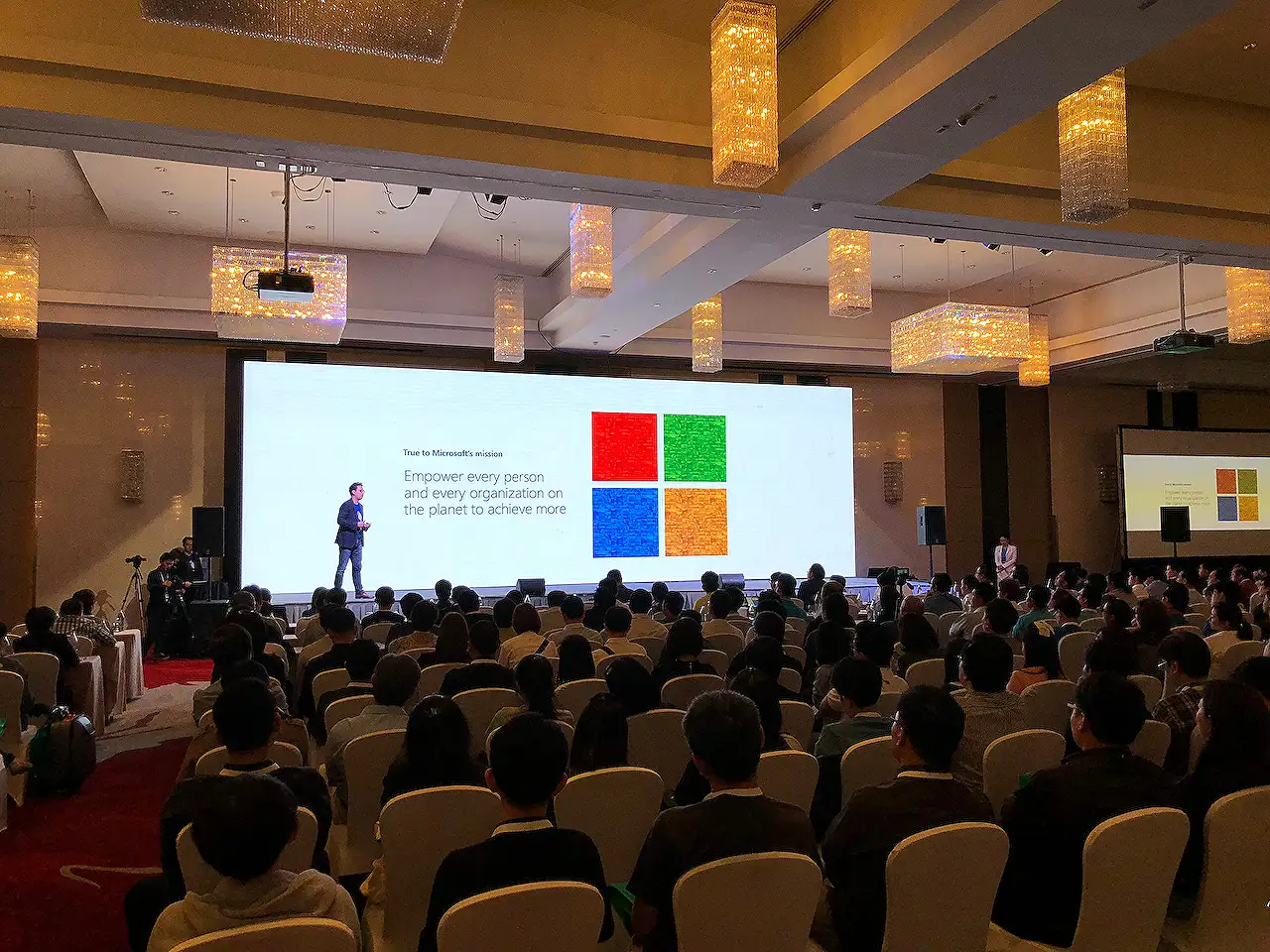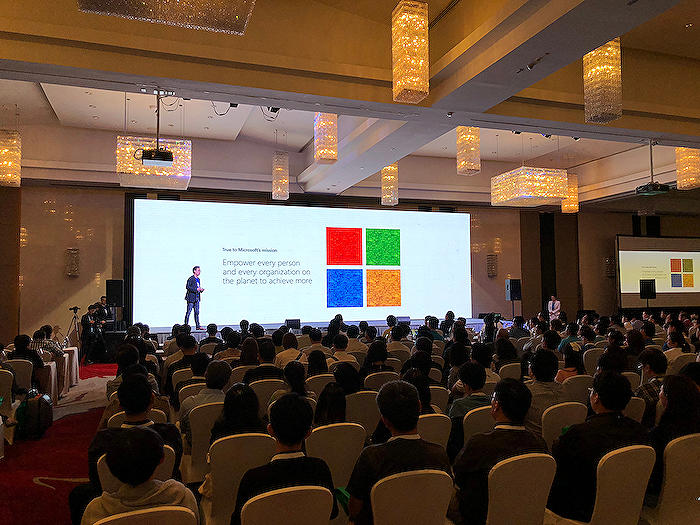
OpenAI Success: Critical Role of Microsoft Explained
Unlock the potential of AI with Microsoft Azure—the powerhouse behind OpenAIs successful GPT language models and AI innovations.
The Influence of Microsoft on OpenAI's Successful Journey
OpenAI's co-founder Sam Altman recently praised Microsoft, particularly Azure, for offering powerful AI technology that constructed the backbone of GPT language models. From conversational AI and ChatGPT to more sophisticated solutions like Dall-E, OpenAI has been effectively launching its products with an important contribution from Azure.
Tracing back to 2019, the collaboration between OpenAI and Microsoft kick-started when the latter pledged a massive $1 billion investment in OpenAI's AGI (Artificial General Intelligence) project. The project aimed to yield far-reaching economic impact. This vital strategic alliance paved the way for OpenAI to construct both hardware and software platform within Azure and made Microsoft the exclusive cloud provider for OpenAI.
Under this alliance, the duo aimed to build AI supercomputing technologies within Azure, run OpenAI’s services on Microsoft and ultimately establish Microsoft as the preferred partner for OpenAI's new AI technologies commercialization. Owing to this, API access for any of OpenAI’s products is only available for Microsoft users.
Snapshot of the OpenAI-Microsoft Association
This collaboration resulted in some truly innovative implementations. In one notable instance, Microsoft collaborated with OpenAI to construct one of the world's most powerful supercomputers, which is exclusively dedicated for OpenAI's use and built specifically for training colossal distributed AI models.
Another striking outcome of this association is the integration of OpenAI’s services in companies like Shutterstock. While Microsoft does not own Shutterstock, in 2020, the tech giant announced that Microsoft Advertising would collaborate with Shutterstock to integrate Shutterstock API on its advertising platform, which paved the way for the dual advantage of OpenAI’s API for both Microsoft and Shutterstock.
While OpenAI's products are solely used by Microsoft, the models are publicly accessible and have been adopted by many to develop their products. Examples include the GPT-3 model for writing services, used by many AI companies, and the GPT-3.5 model, widely integrated into messaging platforms.
About Microsoft's AI Infrastructure Development
In February 2022, Microsoft Azure unveiled its AI infrastructure service named Singularity. This novel platform, designed from the ground up, carries AI workloads both within and outside Microsoft ecosystem. The platform has left a favorable impact on Microsoft’s undertakings as it drives affordability by promoting high utilization across deep learning assignments without compromising on performance.
This innovative service enables hundreds of GPUs and AI accelerators to cooperate, treating them as a single cluster and facilitates data scientists and AI practitioners to build, scale, and tweak their models on Microsoft's distributed infrastructure service.
OpenAI has indeed played a pivotal role in launching many of Microsoft's AI startups under the Azure Cognitive Services banner. This service grants customers built-in responsible AI and access to enterprise-level Azure security to detect and mitigate API misuse.
OpenAI's Impact on Microsoft AI Startups and Industry Leadership
Startups like VideoKen, mem.ai, and Pointers have registered for the Microsoft for Startups initiative. More significant players in the market like Virta.ai and Trelent, utilise Microsoft’s Cognitive Services for their operations, incorporating Natural Language Processing and source code documentation respectively.
OpenAI, despite fierce market competition, has consistently remained ahead in some respects, with models like GPT-3, Dall-E, and ChatGPT keeping it at the forefront of AI innovation. The AI coding assistant, Copilot, which is powered by OpenAI's Codex, has executed exceptionally well thanks to the vast coding data Microsoft accessed via GitHub.
Microsoft aims to give Bing, its search engine, a second chance with ChatGPT and several other products. However, dethroning Google's monopoly in the search market will be a challenge, especially with Google’s chatbot LaMDA already in the pipeline.
The General Impact of OpenAI and Microsoft Partnership
In general, this synergy between two tech giants has allowed for impressive technological advancements and digital transformations to be made. The power of OpenAI and the solid infrastructure provided by Microsoft accelerates the pace of AI development. This symbiotic partnership illustrates the potential of collaborations in the tech industry, driving innovation, product offerings, and market competitiveness. As the evolution of AI continues, we look forward to the disruptive solutions these collaborations will bring to the digital landscape.
Read more about Azure OpenAI Read the full article Microsoft’s Role in the Success of OpenAI

Learn about Microsoft’s Role in the Success of OpenAI
In the realm of artificial intelligence (AI), the exceptional partnership between Microsoft and OpenAI holds a significant position. OpenAI's co-founder, Sam Altman, recently acknowledged Microsoft, notably its cloud computing service, Azure, for facilitating the AI infrastructure that powers the Generative Pretrained Transformer (GPT) language models. These encompass conversational AI tools such as Chatbot GPT and DALL-E for text-to-image modeling. OpenAI's capacity to launch its products smoothly is substantially attributable to Microsoft's role.
The Microsoft-OpenAI affiliation began in 2019 when the tech giant publicly committed to invest $1 billion into OpenAI’s project for constructing Artificial General Intelligence (AGI) with broad economic benefits. The purpose of this partnership was to create a platform within Azure, combining both hardware and software. This arrangement also implied that Microsoft would become OpenAI's exclusive cloud provider.
The collaboration encapsulates three fundamental elements: joint development of Azure's AI supercomputing technologies, deployment of OpenAI's services on Microsoft, and preference for Microsoft as OpenAI's best choice for commercialization of new AI technologies. Consequently, accessibility of OpenAI's boosts Microsoft's business prospects as seen with its recent collaboration with Shutterstock for integrating DALL-E into its platform.
Under this collaboration, Microsoft and OpenAI also constructed the world's fifth-largest supercomputer with an exclusive aim of training colossal distributed AI models. Importantly, while OpenAI's products are exclusively tied to Microsoft, their models are publicly accessible, broadly benefitting AI companies for developing their products, often revolving around the implementation of the GPT-3 model for multiple writing services.
As an innovative tech powerhouse, Microsoft made public in February 2022, Singularity, its AI infrastructure service developed from the ground up to handle AI workloads both inside and outside Microsoft. This radical shift from OS to AI has proven to be a giant leap, with the platform reducing cost by ensuring high utilization across deep learning tasks sans any detrimental impact on performance.
The OpenAI technologies have been instrumental in launching an array of innovative AI startups under Microsoft's umbrella. Operating under the Azure OpenAI service banner, the Redmond-based tech giant encourages companies to leverage massive AI models for developing cutting-edge applications. The distinguishing factor of Azure OpenAI is the integration of built-in responsible AI and access to Azure’s enterprise-grade security which helps detect and mitigate any misuse of the API.
The cognitive service offered by Azure encompasses sophisticated language models such as those of OpenAI, including GPT-3, Codex, and DALL-E, with Azure's robust security and enterprise features. Startups like VideoKen, mem.ai, and Pointers have registered under Microsoft for Startups, proving the growing popularity of this service.
Evidently, OpenAI maintains an edge over many competitors in the industry, with GPT-3, Dall-E, and Chatbot GPT being some of the pioneering models. The AI coding assistant, Copilot, backed by OpenAI’s Codex, emerged as a massive success by leveraging Microsoft's wealth of coding data available through GitHub.
As we look ahead, it will be intriguing to witness Microsoft's trajectory in breathing new life into Bing using innovative products like a chatbot and more. While competing with Google in the search engine market could be a tough challenge, Microsoft's successful partnership with OpenAI equips it with a substantial impetus to foster AI innovation.
More links on about Microsoft’s Role in the Success of OpenAI
- Microsoft's Role in the Success of OpenAI
- Dec 11, 2022 — The AI coding assistant, Copilot, powered by OpenAI's Codex, has been widely successful and has killed almost all of its competitors because of ...
- Microsoft's $13 billion bet on OpenAI carries huge potential ...
- Apr 8, 2023 — Microsoft's partnership with OpenAI could mean billions of dollars a year in new revenue, but the investment structure is complicated.
- OpenAI and Microsoft extend partnership
- Jan 23, 2023 — We're happy to announce that OpenAI and Microsoft are extending our partnership.
Keywords
Microsoft OpenAI, OpenAI success, Microsoft’s Role in OpenAI, Microsoft OpenAI partnership, OpenAI technology, OpenAI Development, Microsoft AI advancement, Success of OpenAI, Microsoft and AI progress, Influence of Microsoft in OpenAI